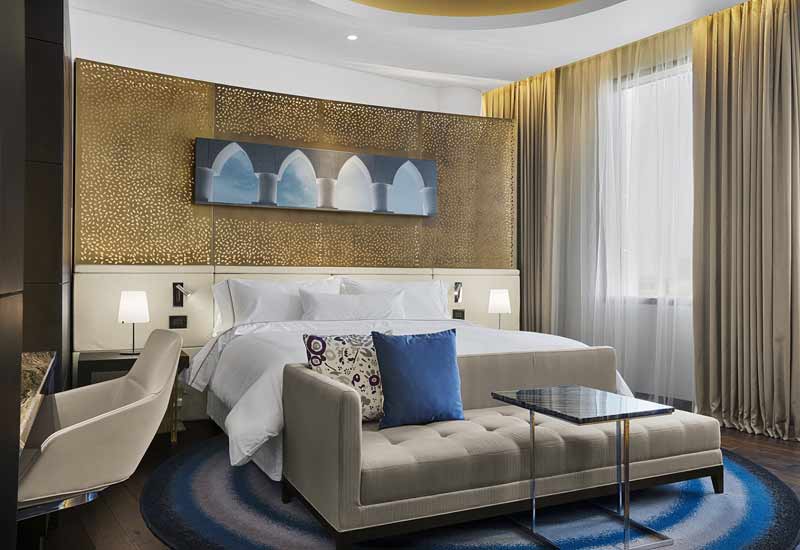![[L-R] Gianrico Esposito, the general manager at The Westin Doha Hotel & Spa, and Brian Povinelli, senior vice president, global brand leader for Westin and Le Méridien.](/pictures/Gianrico-Esposito-and-Brian-Povinelli.jpg) [L-R] Gianrico Esposito, the general manager at The Westin Doha Hotel & Spa, and Brian Povinelli, senior vice president, global brand leader for Westin and Le Méridien.
[L-R] Gianrico Esposito, the general manager at The Westin Doha Hotel & Spa, and Brian Povinelli, senior vice president, global brand leader for Westin and Le Méridien.
“There is lots of flexibility within the framework to develop an in-house concept or work with a third-party restaurant. It always depends on the local hotel and market demand. And sometimes the owners have a vision or want to work with a particular chef,” Povinelli adds.
And Starwood has a wide range of different types of owner across its hotel portfolios — corporate owners, real estate investment trusts (REITS), family owners and pension funds, as well as the circa 10% of properties it owns itself.
Starwood will happily work with third-party brands if it feels that relationship will help to differentiate the offer and lift it above the competition. “That’s driven by the consumer,” says Povinelli. In the Middle East, Westin works with Illy Coffee; and in the US, it has partnered with Starbucks. “That elevates the customer’s coffee experience beyond anything we could do with an own-label coffee brand.
“And Westin’s partnership with Superfoods gives us the healthy credentials and credibility. I’m not sure we’d get as much if we did it ourselves,” he adds.
But there are areas in which Westin has developed its own products, including its White Tea line of fragrances and bathroom amenities. “Guests love it, and we’ve sold a million units through our retail store,” reveals Povinelli.
Ultimately, Povinelli believes that Starwood’s ability to create and manage different brands, even in the same category of hotel, is what has made the group so attractive to Marriott International which is in the process of acquiring its rival to create the world’s largest hotel chain.

| Advertisement |









 Search our database of more than 2,700 industry companies
Search our database of more than 2,700 industry companies









